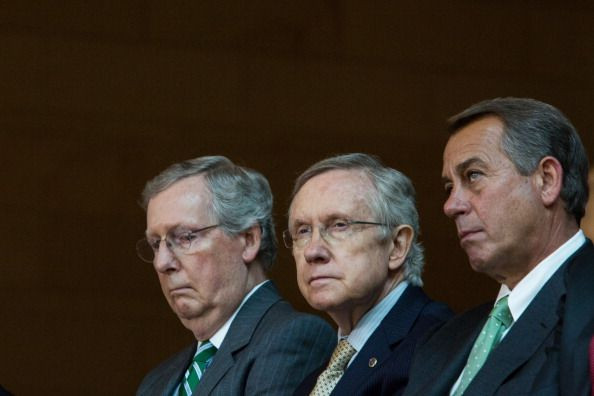Bill Kill: Internet Sales Tax Demise Hurts Big Box Chains, So Why Isn't Amazon Smiling?

Republicans have yet to officially take control of Congress but American businesses are already split on the effect of the midterm election after House Speaker John Boehner killed a bill that would have introduced an Internet sales tax. Boehner’s decision Wednesday, after years of debate between lawmakers and retailers, marked a major victory for Internet companies that, for the foreseeable future, will not be forced to collect the state taxes that brick-and-mortar stores do.
That gives pure-play e-commerce merchants a cost advantage over brick-and-mortar rivals.
Boehner’s announcement that the House of Representatives wouldn’t move the Marketplace Fairness Act (MFA), passed by the Senate last year, to the floor before the end of the congressional session meant doom for the bill. It’s not expected to be revived by the incoming, largely anti-tax Republican Senate either, meaning that online retailers are excused from paying taxes on products sold to states where they do not have a physical presence.
Oregon, Delaware, New Hampshire, Montana and Alaska are the only states without sales tax. Rates vary between 5 percent and 10 percent throughout the rest of the U.S.
The MFA’s demise is a big loss for traditional brick-and-mortar stores, including Walmart and Home Depot, which have argued having differing tax responsibilities puts them at a disadvantage when competing against eBay, Overstock and other digital outlets. Much of the big box stores’ scorn has focused on Amazon, which rose to become one of the biggest retailers in the U.S. by attracting customers away from major corporate chains as well as small American businesses that must charge taxes.
Unlike eBay and hundreds of others, though, Amazon actually opposed the MFA after originally taking the opposite stance. Indeed, the largest e-commerce website in the United States was in favor of a law that would have forced it to charge customers varying levels of sales tax depending on their state of residence. Why? Amazon has become so successful that it has had to open warehouses in a number of states to ensure that distribution keeps up with demand, so it's already subject to brick-and-mortar taxation in many states.
The MFA would have placed Amazon on a more even footing with Internet-only rivals like Overstock and Rakuten (formerly Buy.com).
“The sales tax bill is enthusiastically backed by America’s state and local tax collectors as well as the largest retailers, online and off,” wrote The Wall Street Journal editorial board. “Amazon and other retail giants see it as a way to hobble their smaller competitors by burying them under a blizzard of audits and collection burdens that doesn’t exist offline.”
© Copyright IBTimes 2025. All rights reserved.





















